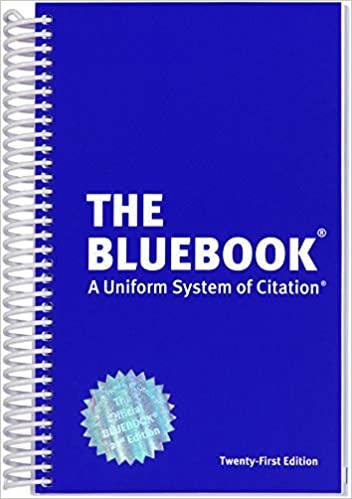Question
QUESTION 1 Zoe, who works as a retail clerk, wishes to talk with her co-workers about organizing a union. Her employer threatens to fire her
QUESTION 1
Zoe, who works as a retail clerk, wishes to talk with her co-workers about organizing a union. Her employer threatens to fire her if she talks with other workers about union activity in the presence of customers while she is working. Does the employer have a legal right to make this threat to Zoe?
a. Yes.
b. Yes, but only if expressly authorized by state law.
c. Yes, but only if expressly authorized by the National Labor Relations Board.
d. No.
QUESTION 2
The workers at Thom Trucking went on strike over wages. Thom Trucking hired permanent replacement workers. Once the strike is settled, striking workers must be offered their jobs back.
True
False
QUESTION 3
Reasonable accommodations under the Americans with Disabilities Act may include:
a. modification of equipment.
b. ramps for accessibility.
c. flexible work schedules.
d. Any of the above.
QUESTION 4
Megan was employed by a large company. Her supervisor told her to falsify government reports. She refused and was fired. She sued for wrongful discharge. Her employer claimed that since Megan was an at-will employee, she had no legal right to claim it was liable for damages. Is the employer right?
a. Yes. An at-will employee does not have a legal right to claim wrongful discharge of employment.
b. Yes. As an employee, Megan owes a duty of loyalty to her employer. If the company was found to have acted illegally by falsifying the reports, it (not Megan) would be liable.
c. No. Even though Megan was an at-will employee, such employees may not be fired without just cause.
d. No. Although at-will employees do not have a great deal of rights relative to job security, they may not be legally fired for refusing to perform an illegal act.
QUESTION 5
Which of the following statements about Title VII is true:
a. Title VII protects employees from discrimination based on their sexual orientation. In other words, under Title VII an employee cannot be fired for being gay.
b. Title VII protects employees who are being discriminated against based on their age.
c. Title VII allows employers to discriminate when hiring an employee if the discrimination is essential to the job that the employee is being hired for.
d. Title VII only covers obvious or blatant employment discrimination, in which employees are plainly treated differently based on their race, color, religion, sex, or national origin.
Step by Step Solution
There are 3 Steps involved in it
Step: 1

Get Instant Access to Expert-Tailored Solutions
See step-by-step solutions with expert insights and AI powered tools for academic success
Step: 2

Step: 3

Ace Your Homework with AI
Get the answers you need in no time with our AI-driven, step-by-step assistance
Get Started


